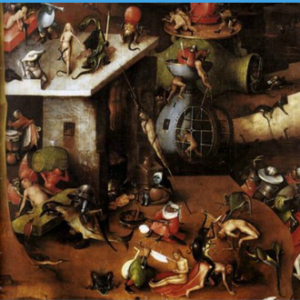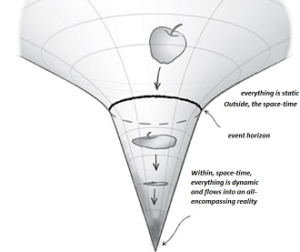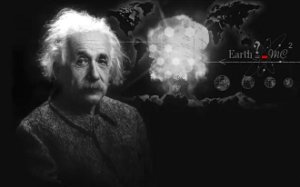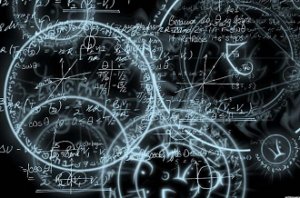
Non-things and subjectivity, the distorted eidos
Subjectivity comes from idealism that judges Being separate from things, thus only being if projected onto objects, but the Greek “eidos”, from which nascent idealism came, there was no such separation, both in Aristotle’s 4 causes: material, formal, efficient and final, as well as in the theory of Platonic ideas, which is the essence and which we have already related to the thing.
separate from things, thus only being if projected onto objects, but the Greek “eidos”, from which nascent idealism came, there was no such separation, both in Aristotle’s 4 causes: material, formal, efficient and final, as well as in the theory of Platonic ideas, which is the essence and which we have already related to the thing.
Those who think the world is immersed in eroticization are mistaken, be it the world of fantasy, that which comes from works of fiction, from children’s imagination and from looking with hope at a better future, today in an increasingly worrying present, Chul- Han writes like this:
“Without fantasy, there is only pornography. Today, the perception itself has pornographic features. It occurs as an immediate contact, even as a copulation of image and eye. The erotic occurs in the blink of an eye” (Han, 2022), that is, it is precisely its opposite, we are in the existential void, in the denial of Being and in it only pornography remains, as a degradation of Being.
Quoting Barthes, Hul-Han clarifies the part of the piece that is: “Absolute subjectivity can only be achieved in a state of silence, the effort to achieve silence (closing the eyes means making the image speak in the silence). Photography touches me when I remove it from its usual blahblablah […] not say anything, close my eyes […]” (Han, 2022) and he is quoting Roland Barthes in his work (photo): The camera lucida (or Lucid, depending on the translation).
Photography is therefore a way of perpetuating silence, the desire of many to take photos as an individual act is to remove it from everyday life and insert something that is eternal, while the public exposure that the digital universe has allowed is to return it to the “ usual blahblabla”, says the author: “The disaster of digital communication arises from the fact that we don’t have time to close our eyes” and maybe he doesn’t know but this is even physical, by not blinking our eyes we should use eye lubricants if We expose it for a lot of time on screens.
“Noise is both acoustic pollution and visual pollution. It pollutes attention” (Han, 2022) and citing Michel Serres says that this instinct is of animal origin, as dogs, tigers and other animals that urinate to demarcate land, pollute with their stench to inhibit other animals from approaching.
Allowing others to approach is not demarcating territory. Jesus’ biblical response to the initial contact of two new disciples is wise (John 1:38): “Jesus asked: “What are you looking for?” They said, “Rabbi (which means: Master), where do you live?” and he replied: “Come and see” and they went and stayed with Him, because he did not demarcate ground and did not close himself.
The logic of silence is contrary to noise, which does not just mean the pollution of an audible sound, but a complete void capable of containing and receiving the Other.
Han, Byung-Chul (2022) Não-coisas : reviravoltas do mundo da vida , transl. of the Rafael Rodrigues Garcia. Brazil, Petrópolis, RJ: ed. Vozes.
The non-thing and the amoral world
For Byung Chul-Han, what is changing is the world of merchandise with the digital, he will analyze the power of the book and the ebook, the latter as a non-thing, the smartphone and other digital objects, but the world of morals as well is changing, he quotes in passing:
world of merchandise with the digital, he will analyze the power of the book and the ebook, the latter as a non-thing, the smartphone and other digital objects, but the world of morals as well is changing, he quotes in passing:
“A person uninterested in things, in possessions, does not submit to the “morality of things” based on work and property. She wants to play more than work; experience and enjoy more than possess. In its cultural phase, the economy also shows playful traits. Theatrics and performance are becoming increasingly meaningful. Cultural production, that is, the production of information, increasingly adapts artistic processes. Creativity becomes its motto”, using Vilém Flusser’s reasoning about the moral of the thing.
What Chul-Han calls the cultural phase should be an in-depth analysis of the period of the cultural industry, radio, cinema and television, which was nothing more than a transition from merchandise to the imagination through advertising, where the brand and not the content, so not only are the work and the product alienated, but its very essence is alienated, using a term from the medieval period, as we have already analyzed in a previous post, it loses its quiddity, its identity and singularity, as it was the cultural industry that gave everything the appearance of sameness.
Also in the final section he will analyze things of the heart, and it is good to remember that these also had their singularity in the past, today transformed into an amoral and timeless character, in the wrong sense of the word, what is eternal is essence and singular and then returns to quiddity.
The final section says, things of the heart, recalling the fox’s dialogue with The Little Prince by Antoine de Saint-Exupéry: “The little prince asks the fox what “apprivoiser” means. To which the fox responds: “It’s something almost forgotten […]. It means becoming familiar, establishing relationships. […] For me, you are just a little boy like a hundred thousand others” and this is the loss of singularity, there it will introduce listening and the relationship with the Furthermore, these relationships cannot be developed without a moral conception.
The exposure of personal relationships, the end of private life through legal and illegal filming, the increasing exposure of even children, is increasing and amoral, there is no room for growth and respect for the morals of each age, not even old age, Rejected as moral and as an age of wisdom, it is increasingly common to expose this “good age” in a pejorative and amoral sense, without limits of respect (Chul-Han calls it symmetry in The Swarm) and a balanced morality.
Everything seen as “freedom”, but which plunges into “upheavals in the world of life”, the author’s subtitle, we are heading towards a civilizational crisis and the return depends not on things, but on a new morality of the state, of human relations and of public life.
Han, Byung-Chul (2022) Não-coisas : reviravoltas do mundo da vida / Byung-Chul Han ; tradução de Rafael Rodrigues Garcia. Brazil, Petrópolis, RJ: ed. Vozes.
What are things
When rereading Byung Chul-Han’s “Non-Things”, he correctly recalls that the term comes from Vilém Flusser, who lived in Brazil for a good part of his life, and also takes up the concepts of Hanna Arendt and Heidegger, but does not penetrate in the essence of the thing, which is not just information.
he correctly recalls that the term comes from Vilém Flusser, who lived in Brazil for a good part of his life, and also takes up the concepts of Hanna Arendt and Heidegger, but does not penetrate in the essence of the thing, which is not just information.
Medieval philosophers had already developed the question of quiddity, which is neither an idea nor a concept, but something that sought to understand the essence of things, from the Latin, “quidditas” means “what is that” and was related to the idea of identity and uniqueness.
Thus, by transforming it into information, it does what Luhman did with the concept (remember that this author deals more with the issue of communication than the thing in itself), he says, quoted by Byung Chul-Han: “His cosmology is a cosmology not of being, but of contingency”, that is, something that has no essence, no identity or singularity and cannot “be”.
Clarifying that it is a particular way of seeing information, as a “transmitted thing”, and in this the author is right: “Information cannot be possessed as easily as things. Possession determines the paradigm of the thing. The world of information is not governed by possession, but by access” (Han, 2022), this is so true that the Portuguese dictionary in Brazil now has a new word which is “logar”, from the English, log “registration” in the sense of marking access to “information”, in Chul-Han’s sense.
Quoting Jeremy Rifkin, Han warns that the transition from possession to access is a paradigm shift that leads to drastic change in the world of life, subtitle of the book, he predicts a new type of human being: “access, therefore, ‘access’ are key terms of the nascent era (Han, 2022).
Jeremy Rifkin, the transition from ownership to access is a profound paradigm shift that leads to drastic changes in the lifeworld. He even predicts the emergence of a new type of human being: “Access, ‘logon’, ‘access’ are the key terms of the nascent era. […]
Regarding the modified identity of the medieval sense, the author says: “We produce ourselves on social media. The French expression se produire means to put oneself on the scene. We act out. We perform our identity” (Han, 2022), mind you: it produces in the media Media are means, the confusion with the idea of networks, not on purpose of course, destroys the third characteristic of the thing which is its singularity, not in this essay, but in others, the author remembers that everything in the world is characterized by sameness, everything it looks very the same.
This world of “non-possession” is differentiated by enjoying more than living, it makes the “idealization of things” a task, it is not uncommon to see in programs and on social media a large number of utopian and bizarre questions, such as, what it would be if you were an object, if you lived on another planet, etc. and this amuses the public of non-things.
Revolutionaries should not be alarmed, but quoting Walter Benjamim, Chul-Han writes: “the deepest relationship one can have with things”, this substantiality is not materialistic but rather a rational and “informational” relationship with things, information here in another sense.
Han, Byung-Chul (2022) Não-coisas : reviravoltas do mundo da vida / Byung-Chul Han ; tradução de Rafael Rodrigues Garcia. Brazil, Petrópolis, RJ: Vozes, 202
Being, the clearing and non-things
Studying the etymology of Glade, taking it from Heidegger’s philosophy, it comes from the German word Lichtung, where in addition to the meaning of clearing in the forest (he himself lived for a few years in the black forest of Germany), while Licht is the word for light, it will mean hidden things, or entities whose truth must come to light, thus some translators use unveiling.
Heidegger’s philosophy, it comes from the German word Lichtung, where in addition to the meaning of clearing in the forest (he himself lived for a few years in the black forest of Germany), while Licht is the word for light, it will mean hidden things, or entities whose truth must come to light, thus some translators use unveiling.
The light reminds us of what the magi followed, who were followed by a star that they carried until the birth of Jesus, they were probably Persian followers of Zoroaster, a painting from Ravenna (Picture in wall of Ravenna church, 526 DC) that is very old reveals the hats they wore and the pants that were from that region.
The clearing is, in the context of modern philosophy, what is hidden within a whole, where Being must emerge, and this seems more appropriate to modernity, since the fragmentation where only the part emerges, is most often opposed to the whole. to which the entity belongs, thus the question of Being.
The being that discovers itself, Heidegger himself stated: “lets itself be seen in its being and be discovered. The true-being (truth) of the statement must be understood in the sense of being-discoverer” (Heidegger, 1986, 219).
First we see this ontological truth as Being, and no longer as logic, second we see this relationship between knowing the object and the relationship with Being itself, which in modern philosophy could be called subjectivity, but it is not because they are not separate instances, However, separated from their object materiality they can become something beyond what was conceived until recently, the philosopher Byung Chul-Han wrote an essay about non-things, the world of digital objects where the “inflation of things deceives us into believing in opposite”.
The author will refer to the contemporary world as “As information hunters, we become blind to silent, discreet things, even ordinary things, trivialities or conventionalities that lack stimulation, but that we perceive in our daily lives”, and thus we plunge into a darkness of Being as opposed to clearing.
The digital order is making the world unearthly, unsubstantial, says the author in the preface: “Today, the earthly order is being replaced by the digital order. The digital order dethings the world by computerizing it” capturing a category from Vilém Flusser states: “Non-things are currently invading our environment from all sides, and are supplanting things. These non-things are called information”, citing Flusser’s work: Dinge und Undinge – Phenomenological Sketches. Munich, 1993, it is worth remembering that Flusser lived in Brazil from 1940 to 1972.
In this logic, silence, the vita (life) contemplative (another book by the author) escapes, and Being collapses.
Han, Byung-Chul (2022) Não-coisas : reviravoltas do mundo da vida / Byung-Chul Han ; tradução de Rafael Rodrigues Garcia. – Petrópolis, RJ : Vozes, 202
HEIDEGGER, M. Sein und Zeit. 17 ed. Tübingen, Niemeyer, 1986.
The escalation of wars
Although it cannot yet be declared a world  war, the interference of Russia and the United States in several wars on the planet is already open and declared, Ukraine, on strong air attacks in all regions, issued a warning this Monday about these attacks, in Palestine the news They say that over 70% of the territory is uninhabitable due to the war.
war, the interference of Russia and the United States in several wars on the planet is already open and declared, Ukraine, on strong air attacks in all regions, issued a warning this Monday about these attacks, in Palestine the news They say that over 70% of the territory is uninhabitable due to the war.
Tension continues in the East, the North Korean dictator considers himself at war with the United States and on Saturday (06/01) more than 60 artillery shots were observed on the border with South Korea, tension in the area is growing, and there are American ships nearby.
Kim Jon-Um’s motivation was the naval exercise near the Baengnyeongdo and Yeongpyong islands, a border region between the Koreas (map above) although North Korea’s response could be thought of as defensive, Kim’s declaration was of open war with the In the USA, the warmongering stance of conservative South Korean president Yoon Suk-yeol strains relations with North Korea, which calls him a “gangster”.
The United States does not rule out open intervention in Eastern Europe, China maintains reservations, but always declares that the island of Taiwan is a rebel province and considers it part of Chinese territory, it is a declaration that an inevitable American defense and probable Japan in the area would also mean China entering the war, this scenario is a third world war, and we are on a very fragile threshold of this possibility.
From an economic point of view, the road in the BRICS of countries such as Egypt, Saudi Arabia, Iran and Ethiopia is also a cause of tension, since the Arab countries ally themselves with the socialists.
There is no longer any way to ignore the level of global tension for 2024, although hope will always remain with those who sincerely desire peace, and do not use it as warlike rhetoric.
Globalism or Universalism, a new period
The current crisis clearly points to a civilizational crisis, Eurocentric and Enlightenment visions already showed their exhaustion in previous periods, by thinkers such as Nietzsche and Shopenhauer who sought elements in Western philosophy, but quantum physics and studies on an era called “anthropocene ” such as the transdisciplinary studies of Anna Tsing, founder of AURA (Arhus University Research on the Anthropocene) and one of the editors of the Feral Atlas (feralatlas.org) published by Stanford University Press.
crisis, Eurocentric and Enlightenment visions already showed their exhaustion in previous periods, by thinkers such as Nietzsche and Shopenhauer who sought elements in Western philosophy, but quantum physics and studies on an era called “anthropocene ” such as the transdisciplinary studies of Anna Tsing, founder of AURA (Arhus University Research on the Anthropocene) and one of the editors of the Feral Atlas (feralatlas.org) published by Stanford University Press.
Thus, the theories of globalism and NWO (New World Order) are nothing more than conspiracy theories, although the political forces at play may also have influences from various political organizations that desire new forms of imperialism and population control.
Simply looking at an increasingly complex universe in which old Copernican and Newtonian paradigms, of great influence on Western thought, die, show a much more complex reality, such as string theory pointed out by Michio Kaku as one of the few alternatives to explain the universe as we now see it through megatelescopes.
Even Einstein’s idea of understanding the mind of God is very far from what a theory of Everything and the Whole really means, where it is almost impossible not to think of a Being with an unimaginable intelligence who created everything, a simple energy or chance is simplistic Too many and even theoretical physicists such as Albert Einstein, Stephen Hawking and Michio Kaku have admitted this hypothesis.
However, it is difficult to imagine a mega-intelligent consciousness in the face of such primary reasoning that involves the majority of Christian thinkers, figures such as Augustine of Hippo, Thomas Aquinas, Duns Scottus and Boethius, these last two are considered saints by Catholics, seem to be overshadowed by a fundamentalist primarism that ignores the complex universe we live in and which still reveals itself to be incomprehensible within human limits.
For serious religious people, it would be enough to examine the visit of the wise (see youtube) men (people from other beliefs and cultures) who came to worship the newborn in Bethlehem to become aware that God is universal and is not limited to human dictates and customs, but there is a lot of false prophecy.
The limit of a true Christianity should be as Augustine of Hippo said: “the limit of Love is to love without limits”, this should be essential to a true God of Love.
The 3 Wise kings – Documentary Discovery Civilization l Dublado l – YouTube
The mystery of black holes
The center of the Milky Way, the galaxy where our solar system inhabits, is formed by a disk with spiral arms and a dense, yellowish central region known as the “bulge” and there are around ten billion stars orbiting the colossal object that is its center called the supermassive black hole Sagittrius A*.
solar system inhabits, is formed by a disk with spiral arms and a dense, yellowish central region known as the “bulge” and there are around ten billion stars orbiting the colossal object that is its center called the supermassive black hole Sagittrius A*.
So, if in the past geocentrism (the Earth as the center) was a naive idea, now Heliocentrism (the sun as the center) is also a provincial and outdated idea, but what black holes are, it was not Einstein but Karl Schwarzschild who was the first to propose its existence.
Steven S. Gubser’s book “The Little Book of Black Holes”, deals in a simple way, as much as possible, explains Einstein’s special and general relativity and Schwarzschild’s equations that gave rise to the topic, black holes are one of the strong themes in current astronomy and one of the sources of research for the James Webb mega-telescope.
The book begins by recounting an experiment carried out on September 14, 2015, almost a hundred years after Einstein announced his theory of general relativity, two massive detectors, one in Louisiana and the other in Washington, were carrying out a gravitational wave experiment when they detected an audible signal, such as a serious knock and five months later they announced that they had detected two colliding black holes forming a larger one, the discovery was spectacular.
Both black holes and gravitational waves were predicted in Einstein’s Theory. In this theory, the black hole is a region of space-time (the notion of absolute time and space has already been overcome) where all nearby matter is attracted and is impossible to escape.
There is a popular saying that everything that goes up must come down, says the author, however the idea of the Schwarzschild equations is that nothing can go up, only come down and in the case of black holes where does that which must come down go, that is, what happens to what is attracted to the black hole.
We know the story of the apple that would have inspired Newton’s law of universal gravitation, the author of the book then suggests an apple falling into a black hole.
An apple outside the black hole events everything is static, at the horizon of these events everything is dynamic, flowing towards an all-encompassing singularity (where space-time changes dynamically in an extraordinary way, there two dimensions compress and the third is stretched.
Stephen Hawking, famous for proposing Big Bang equations, speculated that black holes are not actually black, they have their color (in fact, outside our visual range of colors from violet to red) determined by temperature, energy and entropy of its surface (if we can call the two dimensions that, since it is space-time).
This simplified introduction is developed over seven chapters of the book, in astronomical details and their equations, which requires some more specific knowledge of physics.
Gubser, Steven S., Pretorius, F. 2021. The Little Book of Black Hole. US: Princeton Press, 2018.
Physics and the mind of God
The basic original question of man is language, but when searching for information man was forced to look at the universe and try to understand its enigmas, geocentrism (the earth as the center of everything), heliocentrism (the sun as the center of everything) dominated human language and thought for millennia, throughout this time anthropocentrism dominated human conception and with this the attempt to dominate all of nature grew.
but when searching for information man was forced to look at the universe and try to understand its enigmas, geocentrism (the earth as the center of everything), heliocentrism (the sun as the center of everything) dominated human language and thought for millennia, throughout this time anthropocentrism dominated human conception and with this the attempt to dominate all of nature grew.
However, nature is indomitable, modernity was an attempt to dominate the forces of nature and assert anthropocentrism over it, but it has its own logic, and when looking more deeply the universe that had a mythological explanation moved to a more focused focus. clear of eschatological inquiry: where did we come from and where are we going.
The book by theoretical physicist Michio Kaku: “The God equation” takes a deep dive into this issue from contemporary physics and cosmology, the physicist is the great theorist of string physics (Hyperspace is one of his books), professor at Harvard and host of programs on Discovery Channel.
In his book he explains the quest of physicists such as Stephen Hawking and Albert Einstein to try to explain all the forces of the cosmos, what is called the theory of everything, and which in its current formulation is called the Standard Physics Theory, the discovery of quantum forces of particles, including the Higgs boson, the vision of the photon with a particle of zero mass, the particles of terrestrial magnetism helped this unification, but that’s not all.
Many physicists have failed, the quantum explanation breaks with the idea of “thing” that some dualist authors continue to have, the “quantum” is something beyond it has a third state, called in physics the “third included” where a particle is between the Being and Non-Being and is not dual.
If this state of quantum physics is already a reality, what the particles actually are is still a mystery, and the “most promising candidate (and, in my opinion, the only candidate) is string theory, which says that the universe it is not made of point particles, but rather of tiny vibrating strings, where each mode of vibration corresponds to a subatomic particle” (Kaku, 2022).
We would need a microscope powerful enough to see electrons, quarks, neutrinos, etc. they are nothing more than vibrations of tiny loops, similar to rubber bands. If we put these elastic bands to vibrate countless times and in different ways, we will eventually be able to create all the subatomic particles in the universe, and this means that the laws of physics are summarized in these modes of vibration of the small strings.
Kaku says in the introduction to his book: “chemistry is a set of melodies that we can play with them. The universe is a symphony. The mind of God, which Einstein eloquently referred to, is a cosmic music that spreads across space-time” (Kaku, 2022).
Kaku, Michio. 2022. A equação de Deus (The God equation). Trans. Alexandre Cherman, Brazil, R.J.: ed. Record, 2022.
From information to narration
The title is purposefully the opposite of the first chapter of Byung Chul Han’s book on the crisis of narration, although he quotes Walter Benjamin who cites the experience of narration in a period before the internet, but the Korean-German philosopher does not clearly see this previous crisis the internet, and thus he himself falls into what he condemns, the absence of analysis in time.
chapter of Byung Chul Han’s book on the crisis of narration, although he quotes Walter Benjamin who cites the experience of narration in a period before the internet, but the Korean-German philosopher does not clearly see this previous crisis the internet, and thus he himself falls into what he condemns, the absence of analysis in time.
If it is true that the Internet and its tool for making information available to laypeople, which is the Web (born in the 90s, more than 20 years after the internet) not only created a profusion of means of disseminating information and its narratives, but also created the possibility of its profusion in audio and video, which gives rise to a new possibility of recorded narration for podcasts and videos.
Of course, this does not mean that that primitive narrative prior to writing and the press, typical of primary orality, has returned, it exists in original cultures and also in some Western cultures and beliefs, for example, among the Kurds there are the “çîrokbê” who, if it were Literally translated, it would be what we understand in Western culture as “history”.
Byung Chul Han’s sentence about the digital universe is clear: “Digitalization deobjectifies and disembodies the world. It also eliminates memories” (Han, 2022) this is partly true, but digital media itself, once recorded, becomes a thing, and once a narration is made, just for example, by Kurdish narrators, the information (in the sense of Chul Han) returns to narration, that is, the reverse process is possible.
Its error, from a philosophical point of view, is an old question about what things are (or what they are), the relationship between subject and object is the result of Western dualism since Parmenides, and only a non-dual vision can understand that the A thing is also not a thing in itself, once narrated.
Thus, information will always be paradoxical, it is narrated when it is and not narrated after it has become narrated-information and is subject to historical distance, but if seen from the point of view of quantum physics it is even more complex, because there are both things, from which the question arises from some physicists that time does not exist, difficult for today’s culture.
This question of time arose in 2012 in a TedTalk by the Italian Carlo Roveli: “Time Doesn’t Exist and I’ll Tell You That in 15 Minutes”, but has gained popularity now because the James Webb mega-telescope proposes several new paradigms when looking deeper into the universe, We are at the end of the Copernican era, the center of our galaxy is a black hole and they have already started to say what they are, dark matter and dark energy are also beginning to be revealed.
The theoretical physicist Michio Kaku gives the history of this idea, “In The God Equation” (ed. Record, 224 pp, trans.: Alexandre Cherman), and there he gives a written account of today’s physics.
Han, Byung-Chul (2022). Não-coisas : reviravoltas do mundo da vida / Byung-Chul Han ; tradução de Rafael Rodrigues Garcia. – Petrópolis, RJ : Vozes, Brazil.
Happy 2024 and blog line
It is difficult to make a positive assessment of 2023, we expected some positive reaction from humanity in the post-pandemic where many died as a result of the worsening of collateral diseases caused by the coronavirus, we expected more solidarity and respect for human life.
we expected some positive reaction from humanity in the post-pandemic where many died as a result of the worsening of collateral diseases caused by the coronavirus, we expected more solidarity and respect for human life.
Ukraine will start the year with a day of mourning due to the massive attack carried out by Russia that killed 39 people and injured 159 others, most of them civilians, the UN declared the attack “unacceptable” and the United States admits direct intervention in war through its troops, this would in practice represent the beginning of a 3rd. World War.
In addition to this crisis, there is the scourge of war in the Gaza strip and tension between Venezuela and Guyana.
The year is not yet over and this month the blog broke its record number of hits with more than 32 thousand and the new line where we delve deeper into the issue of the noosphere, based on Teilhard Chardin who coined the term, also the crisis of thought (we see that the philosophy is also experiencing a crisis) and which is the origin of the current civilizational crisis and Cyberculture, with ethical and social aspects that are deepened in readings of both the emergence of new technologies (ChatGPT, Bard, Azure, etc.) that enter the Era of Generative AI, in the LLM (Large Language Model) model.
The complex scenario requires reading a few authors who detect the golden thread of the current crisis, the idealistic model that comes from the dualism of Ancient Greece (being is and non-being is not), the centralizing and monopolizing state model (even the liberal model that grows in some countries continues to dictate centralized theories and models) and whose crisis affects the social body, culture and even religion where there is no shortage of false prophets, soothsayers and apocalypticists, this appeal grows depending on the severity of the time.
We leave a breath of hope, of certainty that it is possible to emerge from a crisis with balance, responsibility and a dispassionate look at problems, passion for life yes, but not that of fanatics and saviors of the country who contribute little or nothing to humanitarian and responsible for the human future.

